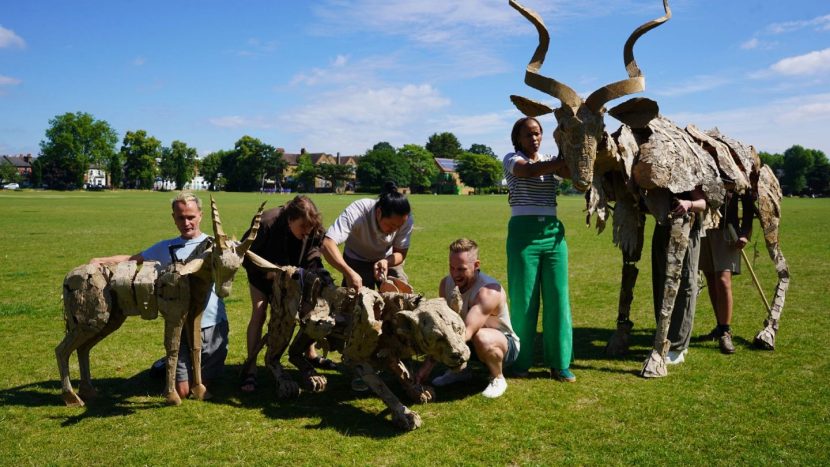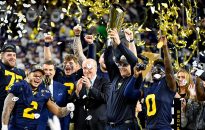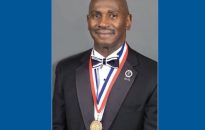The degree of commitment in elite football to combating homophobia is perhaps most clearly demonstrated by the outcome of the rainbow-colored shirts that have adorned France’s top league for several seasons. This initiative was launched in 2019, six years following the introduction of the Premier League’s Rainbow Laces campaign. Advertisement The rationale was largely similar: […]

The degree of commitment in elite football to combating homophobia is perhaps most clearly demonstrated by the outcome of the rainbow-colored shirts that have adorned France’s top league for several seasons. This initiative was launched in 2019, six years following the introduction of the Premier League’s Rainbow Laces campaign.
Advertisement
The rationale was largely similar: for a specific round of matches each year, team captains would don rainbow armbands while clubs would showcase branded rainbow flags, emphasizing the league’s dedication to inclusivity.

Kylian Mbappe adorned with a rainbow No 7 at Paris Saint-Germain in 2022 (John Berry/Getty Images)
During the campaign’s inaugural year, a number of captains opted not to swap their traditional armband for the rainbow version. In 2021, Paris Saint-Germain’s midfielder Idrissa Gueye, who is now with Everton, was absent from his team during the chosen weekend. Officially, his absence was attributed to gastroenteritis. The following year, he was absent again; this time, there were no justifications. It was reported that he had flatly refused to wear the altered shirt.
In 2023, a few players from Toulouse and Nantes emulated Gueye’s stance and opted out of playing. Although there was considerable outrage from politicians, fans, and activists, the response within football was somewhat more introspective. Eric Roy, the manager of Brest, stated that dedicating a day to address homophobia was acceptable, provided it was not in the “final four games when clubs’ survival is at stake.” Equal rights, it seems, are not regarded as quite as critical by some as the battle against relegation.
Nonetheless, these occurrences were relatively rare. According to the French players’ union, a minuscule fraction of the 756 players listed in matchday squads across France’s two highest divisions faced issues with the jerseys. Consequently, football reacted predictably: it deemed the whole process excessive and chose not to repeat it. “It creates the impression of validating those who declined to wear it,” lamented Bertrand Lambert, president of PanamBoyz and Girlz, an LGBTQ+ inclusive club, informed L’Equipe.
Advertisement
Considering this week’s disputes, it’s easy to envision Manchester United adopting a similar perspective regarding the suddenly contentious issue of their rainbow-themed warm-up/walk-out jackets. Players have utilized these jackets as part of their Rainbow Laces pledges for two years without, to be frank, anyone truly paying attention.

Marcus Rashford has previously donned the walk-out jacket (Ash Donelon/Manchester United via Getty Images)
This Sunday, defender Noussair Mazraoui declined to wear the designated walk-out jacket. It remains unclear if he did so due to personal beliefs or concern over the backlash from seemingly supporting gay rights; regardless, his teammates — in a misguided but likely understandable gesture of solidarity — opted to discard them entirely. It is reasonable to speculate that they will not be reintroduced next year; United, like many clubs, typically seek to evade foreseeable issues.
This pattern mirrors the Premier League’s stance as well. The league has been promoting its Rainbow Laces initiative for more than a decade while steadfastly upholding its commitment. “We are resolute in maintaining this momentum, ensuring that football is inclusive for everyone, and [to] send a transparent message that any form of discrimination will not be accepted,” asserted the league’s chief executive, Richard Masters, during the announcement of this year’s event.
 GO DEEPERExplaining the Premier League’s Rainbow Laces controversy and what comes next
GO DEEPERExplaining the Premier League’s Rainbow Laces controversy and what comes next
Up until this week, maintaining such a position had been relatively simple. The campaign faced little to no opposition. No Premier League captain refused to wear a rainbow armband until Anel Ahmedhodzic, the Sheffield United captain, did so last year. He did not clarify his reasoning but simply responded with “Guess” when prompted by a Swedish television reporter.
This year, however, Mazraoui is not the only player voicing dissent. Ipswich Town’s captain Sam Morsy, a devout Muslim, used a traditional black armband for two matches instead of the rainbow variant, a choice confirmed by his club to stem from his “religious beliefs.” Marc Guehi, his counterpart from Crystal Palace, wore the rainbow armband on two occasions but only after inscribing what can likely be termed pointed religious messages upon it.
Advertisement
The reasons behind these shifts, if any, remain unclear and might simply stem from coincidence: it just so happens that there are currently two captains in the Premier League whose interpretations of their respective beliefs clash with the campaign. It could also reflect a broader fatigue with activism, a swing towards more conservative viewpoints, an increased readiness to stand firm, or a notion that a sport on the verge of endorsing a Saudi Arabian World Cup is ill-equipped to advocate morals on this front.
Fortunately, the reactions to both events have been, by football’s standards, quite nuanced and mature. The Rainbow Tractors, an LGBTQ+ supporters group from Ipswich, expressed their “disappointment” with Morsy’s choice but emphasized their ongoing respect for his religious beliefs. Crystal Palace manager Oliver Glasner stated that the club respects Guehi’s right to his opinion.
However, this situation puts the Premier League’s principles to the test. As evident from the experience in France’s Ligue 1, football tends to favor the least contentious path. At its core, it functions as an entity so expansive that it lacks definitive beliefs. It adheres fervently to that (apocryphal) Michael Jordan adage regarding Republicans buying sneakers too. Symbols and slogans have their place, yet it often commits to inclusivity merely until someone feels marginalized. Established principles exist, but they are flexible.
An element of hubris could be inferred here, as if this is a deserved consequence for a sport that may have grown overly confident in its moral standing. While football claims to be apolitical, its definition of political issues has rarely withstood scrutiny. The sport endorses gay rights — except when it comes to World Cup host selection — yet shuns expressions supporting Palestine. Playing in a rainbow jersey in France is acceptable; donning a hijab is not. There is a lack of coherent intellectual consistency here. It seems to illustrate the outcome when a sport presumes it solely holds the ability to effect change, becoming enamored with the narrative that a simple game can unite divided populations.
Guehi serves as an example. While he won’t face formal repercussions for writing “Jesus loves you” on the armband he wore against Ipswich on Tuesday, he was reminded that doing so technically breached the league’s guidelines on religious messaging in terms of “match equipment”. However, can it not also be seen as sending a message with religious connotations to ask Guehi to wear a symbol that he believes contradicts his faith?

Crystal Palace captain Guehi (Julian Finney/Getty Images)
This topic possesses such intricacy that it is somewhat ridiculous to expect football to navigate it effortlessly. Undoubtedly, football should welcome everyone. Certainly, the world’s most popular sport ought to ensure that every fan or player feels included. Yet it is not football’s role to dictate to Guehi, Mazraoui, or others what their faith should dictate. What course of action is appropriate when freedom from discrimination and freedom of conscience not only conflict but also diverge in meaning between groups?
“It is incredibly challenging to adjudicate when two protected characteristics collide,” Hugo Scheckter, a former player care officer at various Premier League clubs and, by his description, “one of the few openly gay individuals working in professional men’s football,” stated this week. “Often, it becomes a clash between religion and sexuality.” Football tends to favor simplistic solutions. However, these are deeply complex questions.
Advertisement
The league’s instinct might be to completely retract, adopting a straightforward — and literal — interpretation of its official, apolitical position. No further interventions, no more activations, no campaigns.
This, however, appears unlikely, particularly because while it could mean fewer rainbows, it would also necessitate the discontinuation of poppies, which would provoke a much more vocal segment of fans. Equally, easing the rules entirely might take on a libertarian outlook, allowing players — and clubs — to express their platforms on any social or political matters.
Moreover, both strategies would be a neglect of responsibility. The fact that the Premier League has positioned itself as a measure of national relevance — with so many requests for moment(s) of silence before games that clubs feel the act itself is losing meaning — reflects a level of self-importance, but it isn’t incorrect. In a mostly secular environment, football remains one of the final arenas for shared experiences; the sport’s prominence mandates it to fulfill a civic role.
This requires not withdrawal, but authentic engagement. Insisting that players wear armbands or engage in warm-up and walk-out activities or special edition jerseys feels superficial because it is; mandating participation effectively through social sanction places players in an awkward, bordering on illegal situation, forcing them to decide between their careers and beliefs, whilst diminishing the campaigns’ significance.
Far more beneficial, as Scheckter suggests, would be to “allocate adequate resources” towards working with players “to address their inquiries, comprehend their perspectives and find common ground.” Moreover, clubs could formalize their values, confirming that while their players are entitled to individual beliefs, they themselves, as civic bodies, hold values as well.
Football has largely been ready to take a stand when it is uncomplicated. The true challenge, however, lies in taking a stand when it becomes difficult.
(Top photo: Richard Pelham/Getty Images)














